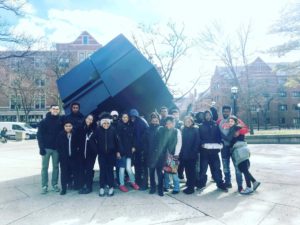This is a post by one of our current M.P.P. students, passing along information and ideas about how to assess the right program for you.
——————————————————————————————————————————–
I’ll start this out by saying: obviously, I’m biased. As a student at the Ford School, I personally think it’s the best place to get a policy degree for many reasons; but as someone who applied to twelve (yes, twelve) graduate schools with no idea what she was looking for, hopefully a look into my decision process will help someone out. Below I’ve listed 5 questions aimed at helping prospective students with their decisions about where to apply to policy school and where to go.
1. Is going to graduate school the right choice for me?
I think the first mistake people make when looking towards graduate school is simply returning to school because they have no idea what else to do and they think school might be the answer to feeling “stuck” in their current position. Before you apply to graduate school I would encourage everyone to think honestly about why they want to return to school and why policy school specifically is the next right step. As a former teacher, policy school made sense for me because I wanted to use my MPP to pivot career paths. I saw very few other ways to move out of education and into the types of social policy jobs I wanted without an advanced degree. However, if I wanted to stay in education policy then I could have probably done that through shifting to work in an education nonprofit of some type, eliminating policy school as a necessity. Before investing time, resources, and money into a graduate degree, make sure you really need it. Are there ways you could advance in your current path without a degree? Are you sure policy is the right fit and not a law degree or a social work degree? Policy school can be as general or as specific an experience as you want it to be, so having some idea of the reasons why you are applying can help you narrow down both where you apply and where you decide to go.
2. Where do I see myself in 10 years?
I know, this question is a terrible one. But bear with me–the exercise is a useful one. Even if you are totally unsure of what you want to be or how you will use this degree, it can be helpful to at least think through a few larger questions. Do you see yourself in a big city or a smaller town? Does federal government work interest you or not? Would you like to have a job that is more centered around desk work or interacting with people? Does direct service energize or exhaust you? Thinking about these questions can help decide what kind of school you’re looking to attend. Wanting to work in federal government might limit your school choices to those in DC or those with already strong connections to federal jobs (like the Ford School), whereas wanting to work on the west coast might encourage you to focus your energies in schools out there. Knowing that a more research-focused job appeals to you makes the case for a more quantitatively-focused program or one that allows you to practice your research skills with a thesis of some sort. Or perhaps you recognize your resume lacks examples of your writing skills–you might want to look at schools that offer opportunities for bettering your craft and even publication. One note here–this thought process might lead you back to Question 1, and that’s ok! Maybe thinking about where you want to be in 10 years illuminates paths you never considered like business school or a master’s in public health. Listen to that.
3. What do I value in an educational setting?
Maybe you’re someone who really cares about facetime with professors. Maybe you’re a liberal-arts graduate like me who values seminar-style classes with heavy discussion and analysis. Maybe you prefer to attend a school with a big sports profile, or maybe you’re going to graduate school just so you can force yourself to finally take statistics. Maybe your first priority is finding a school that can help you finance your education or one that allows you to study a very specific niche area. Whatever your reasons, part of choosing the right school for you is choosing what you value from your education and what you need your master’s degree to do for you. Obviously, graduate school is a very different beast from undergrad, but these questions still apply. One of the reasons I chose the Ford School was because of its outstanding career services department. From a graduate degree I really wanted to expand my network in order to get a job, and I saw the Michigan community and Ford’s career services as a huge part of that. Grounding yourself in what you want from your education can be a helpful step in selecting programs that allow you to reach your goals.
4. How much do I care about location?
Here’s the thing–there are top-tier public policy schools all over the world. Pretty much wherever you choose you are guaranteed to get a great education and move your career forward. However, it’s important to remember that school is not your life, and where you spend the next two (or more) years has an important impact on not just your degree but also your personal life and happiness. Attending school in Ann Arbor is going to be a different experience than going to Boston, or Chicago, or Austin (and not just because of the weather). Choosing the right school for you means considering every aspect of that school, including where it’s located and what that location offers. Maybe you really value being in a big city, or maybe you enjoy the clarity and focus that a college town offers you. If you’re coming to graduate school with a partner or a family that obviously also informs your decision. Having a well-balanced and happy personal life goes a long way towards making graduate school a more enjoyable experience.
5.Can I afford it?
A graduate degree is very valuable, but one of the questions you should absolutely be considering is how much your degree will cost. Saddling yourself with thousands of dollars of loans and entering a life of public service might not be setting yourself up for future success. The balancing act between school and loans is always a difficult one, and so it’s important to consider every aspect of that decision before you commit. One of the great things about Michigan is the plentiful opportunities for grad school students to work as TAs and fund their schooling that way, as well as taking advantage of in-state tuition and grants for those who completed service opportunities such as Americorps. Making sure that the finances make sense for you and your future should be an important part of any decision.
At the end of the day, only you can make the right decision for you. There are so many excellent programs out there (first and foremost, Michigan) that wherever you go will provide you with opportunities that you could not have otherwise had and allow you to impact policy in ways you would never have imagined. Good luck!

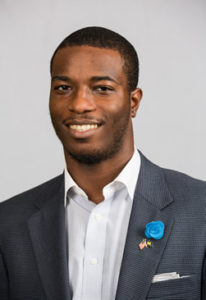
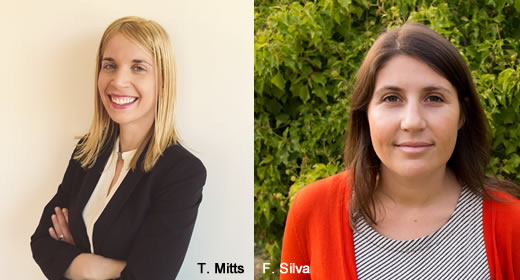
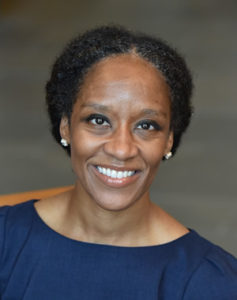 As I begin my new role as the inaugural Diversity, Inclusion and Equity Officer/Lecturer III, I am thrilled to be here and to work with you in this new capacity.
As I begin my new role as the inaugural Diversity, Inclusion and Equity Officer/Lecturer III, I am thrilled to be here and to work with you in this new capacity. 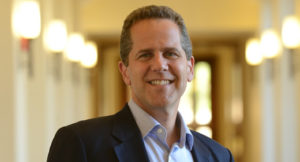
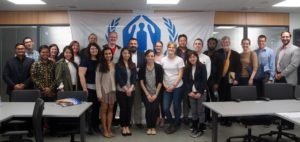
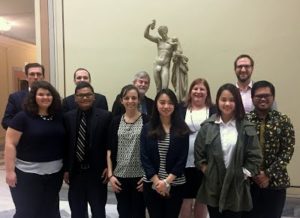
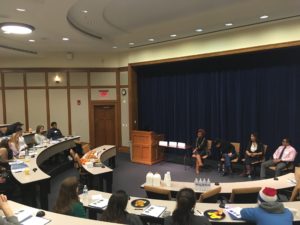 The day started with a panel asking “What Is Public Policy?”, featuring Susan Guindi, the Director of Student and Academic Services; Talha Mirza, a junior and Ford B.A. student; and Charisse Wilkins, a first-year MPP and MBA student. Perhaps the most exciting thing about this session was not the diversity in the panelists’ experiences, interests, and backgrounds, but that Talha himself had been a PPC participant when he had attended WIHI. It was truly full circle to see Talha speaking to students from a high school he had graduated from several years ago.
The day started with a panel asking “What Is Public Policy?”, featuring Susan Guindi, the Director of Student and Academic Services; Talha Mirza, a junior and Ford B.A. student; and Charisse Wilkins, a first-year MPP and MBA student. Perhaps the most exciting thing about this session was not the diversity in the panelists’ experiences, interests, and backgrounds, but that Talha himself had been a PPC participant when he had attended WIHI. It was truly full circle to see Talha speaking to students from a high school he had graduated from several years ago.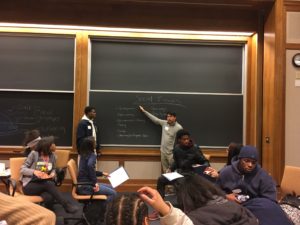 identified topics ranging from lack of mentorship to police brutality to inequality between school districts. One discussed the systemic discrimination in the incarceration system, and highlighted sentencing differences between crack and powder cocaine as a factor contributing to oppression. Listening to them talk about such heavy topics in incredibly articulate and critical ways, it was hard to believe these students were only in high school. They demonstrated an impressive emotional maturity, reminding me that people of color are great policy leaders because our lived experiences bring us closest to the problems we are trying to address.
identified topics ranging from lack of mentorship to police brutality to inequality between school districts. One discussed the systemic discrimination in the incarceration system, and highlighted sentencing differences between crack and powder cocaine as a factor contributing to oppression. Listening to them talk about such heavy topics in incredibly articulate and critical ways, it was hard to believe these students were only in high school. They demonstrated an impressive emotional maturity, reminding me that people of color are great policy leaders because our lived experiences bring us closest to the problems we are trying to address.